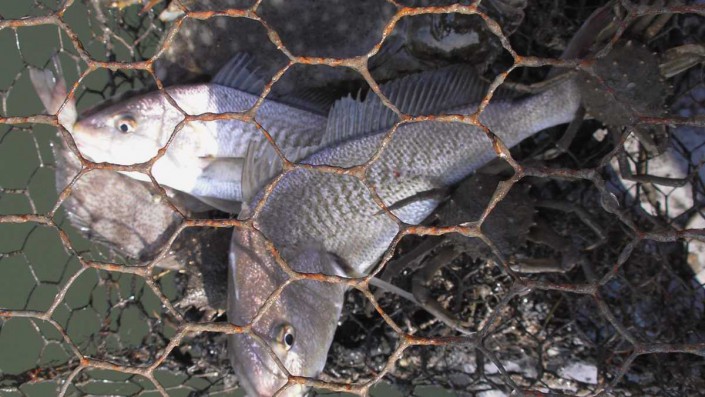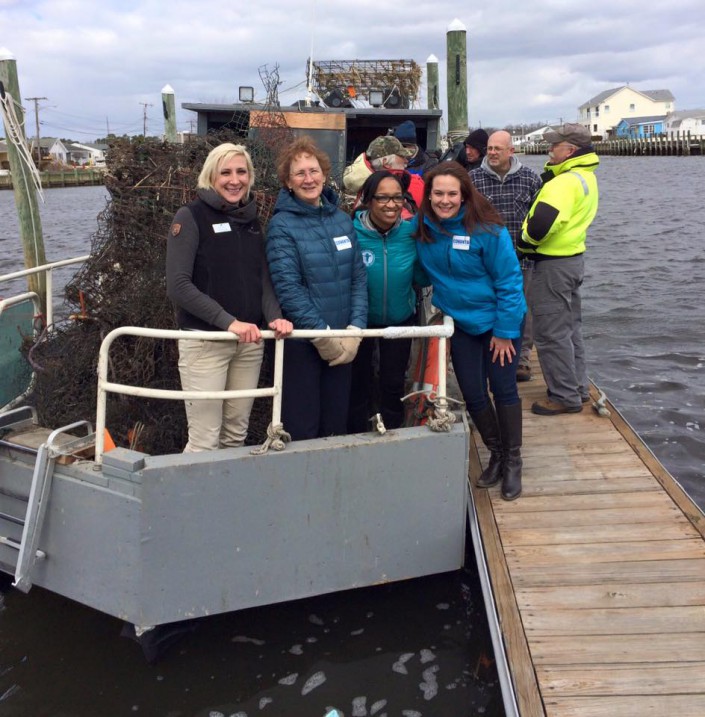395 Abandoned Crab Pots Removed from Barnegat Bay Estuary
CWF Spearheading Project to Recycle Dangerous Fishing Gear and Create Healthier Bay Ecosystem and Local Economy
by Lindsay McNamara, Communications Manager
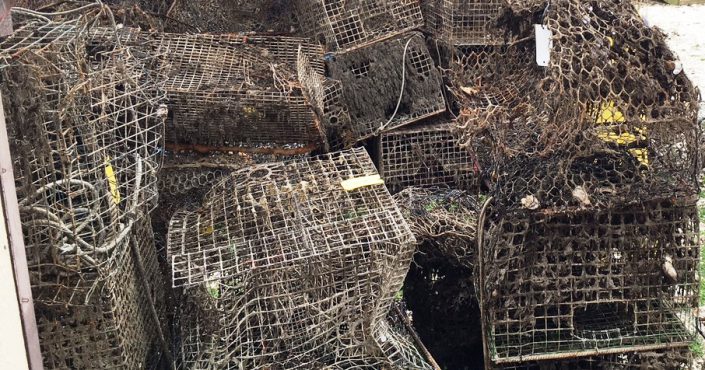
Through a series of public and private partnerships, and with the help of the local fishing community, CWF is leading a project to inventory and remove more than 1,000 abandoned crab pots in Barnegat Bay. These derelict pots, lost from storms or cut lines, can have devastating impacts on the bay ecosystem and local economy.
A phenomenon referred to as “ghost fishing,” these traps will often continue to catch and kill marine life when abandoned, like the Northern diamondback terrapin and otherwise harvestable crabs. These lost harvests translate to economic losses for fishermen and the local community. The pots also disrupt navigation and damage sensitive ecosystems.
In the first year of our two year project, our partners removed 395 of these abandoned crab pots from the Barnegat Bay watershed, championed by local fisherman RJ Cericola and his crew. Almost 260 other pots were assessed but not recovered.
- RJ Cericola: 204 abandoned crab pots removed
- MATES: 103 abandoned crab pots removed
- Stockton University: 64 abandoned crab pots removed (40 near Waretown and 24 near Mud Cove, Little Egg Harbor Bay, reflected in the map below)
- Monmouth University: 24 abandoned crab pots removed
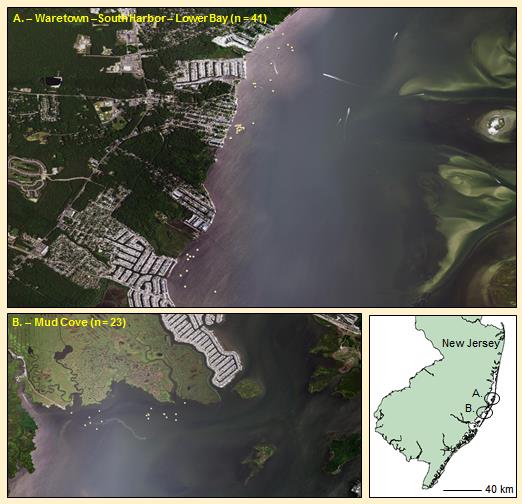
Starting in December 2016, we look forward to working with RJ Cericola, our new partner Jeff Silady — ReClam the Bay boat captain and local fisherman — and bringing on a commercial fisherman to reach our goal of 1,000 abandoned crab pots recovered.
Some of the recovered pots were stored at Stockton University Marine Field Station in Port Republic and were inventoried for data; broken down and recycled by volunteers this past Earth Day.
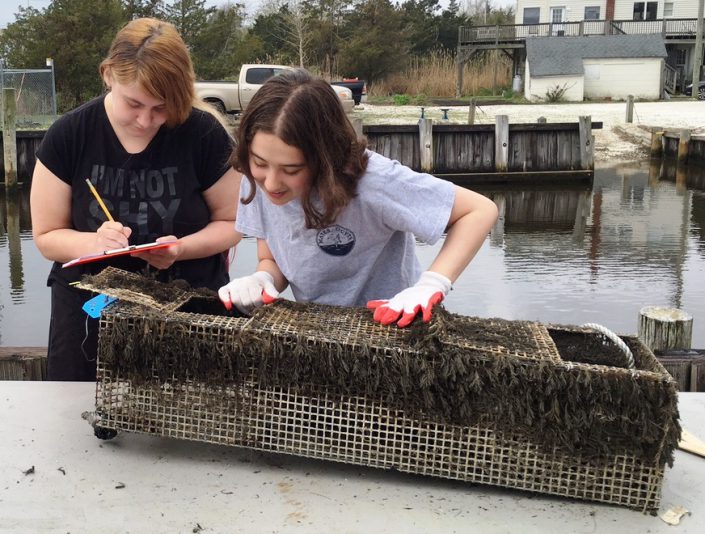
Scientists, students, commercial crabbers and other volunteers gathered on April 23rd for the WeCrab Community Day to record data, clean and prep the recovered derelict crab pots for recycling. The WeCrab Marine Debris Project is a partnership between the Jacques Cousteau National Estuarine Research Reserve and Stockton University.
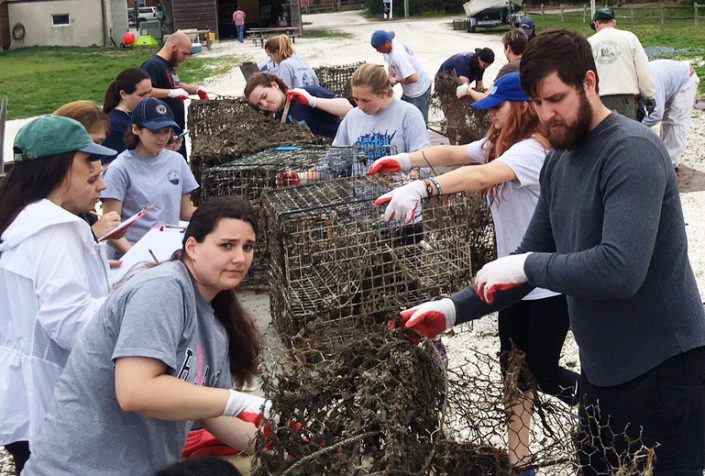
Volunteers collected data on condition, cause of loss, weight, among other points. We are working to understand the impacts of abandoned pots and their distribution, gather information on the percentage of pots lost annually and also develop a long-term reporting system for lost pots and other fishing gear. Information collected from recovered pots help aid these efforts.
CWF’s abandoned crab pot removal project is funded by NOAA’s Community-based Marine Debris Removal Grant. We are proud to work with our partners at the Marine Academy of Technology and Environmental Science, Monmouth University, Stockton University, ReClam the Bay, and volunteers. Conserve Wildlife Foundation is also working on an outreach campaign to raise awareness on the impacts of derelict crab pots and marine debris with additional funding from the New Jersey Corporate Wetlands Restoration Partnership.
Learn More:
- Removing Abandoned Fishing Gear for a Safer Barnegat Bay
- Marine Debris Makes Conserve Wildlife Foundation Crabby
- Species on the Edge: Marine Debris Edition
Lindsay McNamara is the Communications Manager for Conserve Wildlife Foundation of New Jersey.
